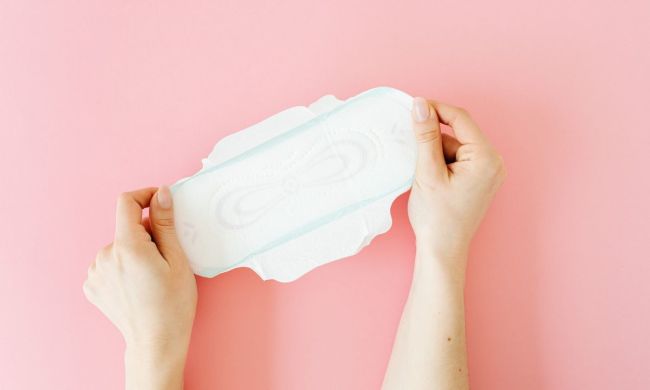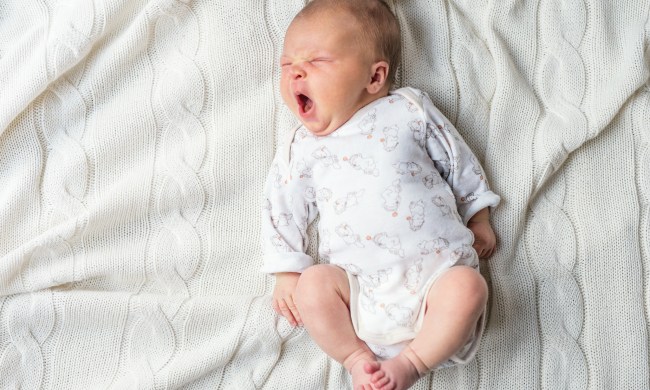Night falls, and you’ve just put your little one down for a good night’s sleep. When you check on your baby, they seem to be resting peacefully, but at the same time, you hear strange noises that resemble mild snorts. You’ve just heard the baby snoring. Isn’t that too young to snore? What causes this? Should you be concerned?
The first year seems to be rather young to start snoring, but for the most part, you won’t have to worry. Tiny snores are normal — and adorable. However, if you notice something odd about your baby’s breathing patterns, the noises, and the overall quality of sleep, you might need to give your doctor a call. Read on to find out about causes your baby’s snoring, what to do about it, and when those cute snorts need intervention.

Causes for baby snoring
Most common reasons
- Small nose and airways filled with liquid
- Stuffy nose
- Length of feed
According to Dr. Dawn Rosenberg, M.D., FAAP, snoring is quite common and normal for babies. The main contributing factor for snoring relates to the size of a baby’s nose and airways. They’re still quite narrow, especially in newborns. These tiny spaces often fill with milk while feeding, or they accumulate mucus and other secreted fluids.
These are normal occurrences with infants who breathe through their noses much more often than their mouths. If you hear short, sniffling noises or a tiny “hum” when your baby sleeps, chances are they are simply snoring, which doesn’t indicate anything is out of the ordinary.
Another cause for a baby’s snoring is a stuffy nose caused by a cold or allergies. If this stuffiness causes discomfort for your baby, or it comes with a low-grade fever, you could contact your pediatrician for recommendations of treatment. Over-the-counter medicine or nasal drops that are safe for babies to take or use a humidifier in the room for a brief period are ways to clear things right up.
One other factor that contributes to snoring is the length of time your baby breastfeeds. For unknown reasons, a shorter period of nursing sometimes results in a baby developing a habit of snoring, as noted during a study conducted by Dr. Dean W. Beeb, a clinical neuropsychologist from Cincinnati Children’s Hospital Medical Center. Also mentioned in an article published by the Sleep Foundation, this factor might relate to how breastfeeding helps to promote the development of the upper airway. The snoring in this situation doesn’t signal a serious condition.

How does baby’s snoring affect sleep?
While snoring during the newborn phase might occur with no serious effects, it impacts development if the habit continues into the toddler and childhood years as mentioned in this study conducted by Hawley E. Montgomery-Downs, Ph.D. (West Virginia University’s Department of Psychology) and David Gozal, M.D., a pediatric pulmonologist.
Basically, if a baby snores to the point of waking up a few times each night, the mix of low-quality sleep and not getting enough oxygen affects both cognitive development and mood. As time passes and the snoring continues, Doctors Montgomery-Downs and Gozal recorded some adverse behaviors while conducting their study which included a lack of focus and, of course, crankiness.

When to be concerned about snoring and what to do
Dr. Rosenberg also mentions that when your baby pauses in between breaths or breathes with a raspy noise, you don’t need to panic. Snoring itself doesn’t signal a serious condition. Rather, you should contact your pediatrician to check for some of the following possibilities:
- Enlarged adenoids
- Enlarged tonsils
- Acid reflux
In the case of acid reflux, you might need to alter your diet if you’re breastfeeding or switch to a different formula if you’re bottle-feeding. In both situations, it’s best to keep a record of what you’re eating to see how the changes coincide with your baby’s snoring or to observe how well your baby tolerates the new formula.
Regarding issues with the airway, your doctor might recommend checking for sleep apnea. While this condition is quite rare in babies, some might have cartilage in the larynx or trachea that’s not completely developed, or they might have throat muscles that relax too much once they fall into a deep sleep.
So, the doctor might ask you to take note of anything abnormal about the baby’s breathing and sounds while sleeping and to record your baby’s snores for playback during an appointment. In more serious situations, your doctor might order a baby breathing monitor to use for a few weeks to get a clearer idea of what’s going on.
For the most part, snoring is not only normal, but it’s also temporary. With attention to diet and daily health habits, your child will “outgrow” the snoring phase. However, if you notice the snoring increasing in volume, or it doesn’t subside after a few months, then consult your pediatrician. Keep an eye on your little one, but enjoy the soft baby snores before they turn into loud teenager grumbles.



